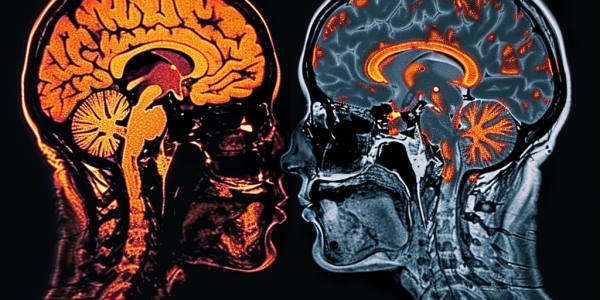Study Shows Hearing Aids May Slow Brain Aging Process in Adults with Mild Cognitive Impairment
Recent research from the University of California, Los Angeles, suggests that hearing aids could slow down brain aging in adults with mild cognitive impairment. A study using 18F-FDG scans revealed that untreated hearing loss may lead to below-normal brain metabolism levels in frontal cortical regions, potentially linking hearing loss to cognitive decline. However, individuals using hearing aids did not experience significant decline, indicating a possible role of hearing aids in preserving brain function and slowing cognitive impairment progression. This study, published in the Journal of Nuclear Medicine, highlights the importance of addressing hearing loss in individuals with mild cognitive impairment to support overall brain health.
Promising Results in Improving Alzheimer’s Symptoms Through Lifestyle Changes
Recent research has shown promising results in improving Alzheimer’s symptoms through lifestyle changes. A study published in Alzheimer’s Research and Therapy revealed cognitive improvement in individuals with mild cognitive impairment or early dementia. Participants like Tammy Maida and Mike Carver regained cognitive abilities through the intervention, offering hope for those affected by Alzheimer’s disease.
Certain Jobs Linked to Higher Risk of Dementia, Study Finds
Certain types of jobs, such as housekeepers and construction workers, may increase the risk of developing dementia, according to a study published in Neurology. Jobs involving routine tasks were found to raise the risk of mild cognitive impairment and dementia. In contrast, occupations that require cognitive activity were suggested to have a protective effect against dementia. Education and job complexity were also identified as factors influencing dementia risk, highlighting the importance of engaging in mentally stimulating activities throughout life.
Study Shows Ketogenic Diet Delays Alzheimer’s-Related Memory Decline in Mice
A recent study from the University of California, Davis, has found that a ketogenic diet can significantly delay Alzheimer’s-related memory decline in mice. The research highlights the potential role of beta-hydroxybutyrate (BHB) in preserving cognitive function and suggests gender-specific benefits for women at higher risk of Alzheimer’s. The findings open up new avenues for research into healthy aging and Alzheimer’s prevention.




